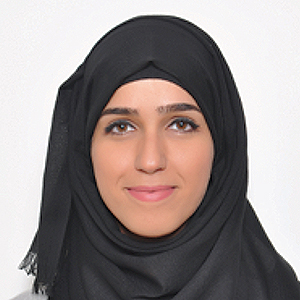It could be argued that the level of female participation in sports is a strong indication of women’s status in a society. The low representation of women in sports in Palestine, and the extent to which sexist remarks and inaccurate labels are thrown at sportswomen on a daily basis, have become increasingly obvious to me ever since I took up boxing, became more involved in the local sports scene, and was elected to serve as secretary-general of the Palestinian Boxing Federation. It was tolerable until one day, when I was accused by a male member of a sports federation of neglecting my duties towards my husband and God, because I had chosen to join a cycling trip with a group of friends. The attack did not end there, and my decision to join a boxing gym was condemned under the pretext that martial arts make women aggressive and therefore should be restricted to men. Although it is normal and refreshing for activists in any field to face opposition, since it fuels them to continue to fight and work for a better society, it is a different story when those who believe that women should not play sports are the very people who are entrusted with sports in Palestine.
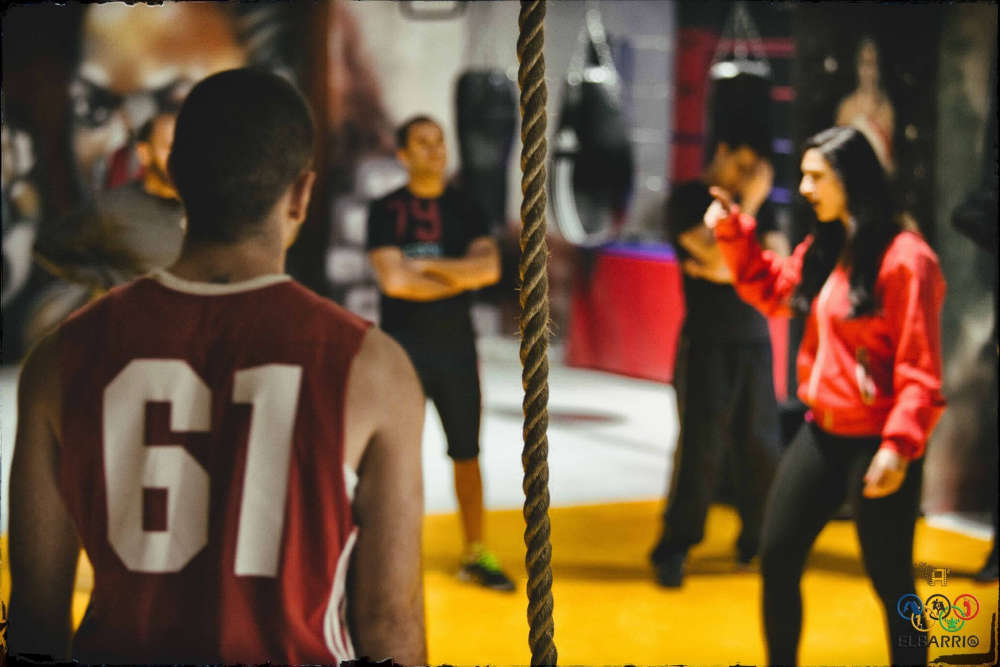
To fully capture the Palestinian sports scene and see what is being done to ensure equal support for women in sports, I spoke to Dr. Nibal Khalil, an athlete herself, who serves as vice president of the Palestinian Olympic Committee, head of international relations, and president of the newly founded Women’s Sports Committee. As the only female member in a male-dominated executive committee that oversees the development of Palestinian sports, she claims that there have been significant strides in women’s sports over the last few years, something that she had not thought was possible.
Citing a number of reasons for the slow and unstable growth in women’s sports in Palestine, Dr. Khalil highlighted the Israeli occupation, although indirect in effect. “Living under occupation has rendered sports an irrelevant luxury,” she admits. As the main reason, however, Dr. Khalil cited the numerous social, economic, and personal challenges that Palestinian women face, which make it much more difficult to become a professional athlete or pursue a career in sports management. “We live in a male-dominated world where culture is shaped by a male perspective and sports are deemed inappropriate, especially in villages and Bedouin communities. Many people believe that engaging in sports will harm girls physically and limit their prospects for getting married or conceiving children,” she explains.
Living in a conservative society where women are advised against mixing with men, let alone training with them, makes the decision to play sports almost inconceivable in some regions. Natali Shaheen, 23, a football coach from Jericho, notes that there are very few sports clubs that cater to women who want to play sports in a female-only setting, especially in villages. Therefore, they have no option but to forgo the idea. At the same time, boys and men have unlimited access to streets and warehouses, which renders sports very accessible, even when resources are limited. “When I was young and training,” she explains, “I used to travel from Jericho to Ramallah twice a week to play football. You do not find many parents willing to allow their young daughters to travel alone to a different city just to play a sport.”
And when lack of infrastructure is coupled with a lack of awareness about the benefits of sports, the problem is much tougher to tackle. Many sportswomen agree that the lack of awareness about the importance of sports and its benefits for girls and women is weakening efforts to see women’s sports thrive in Palestine.
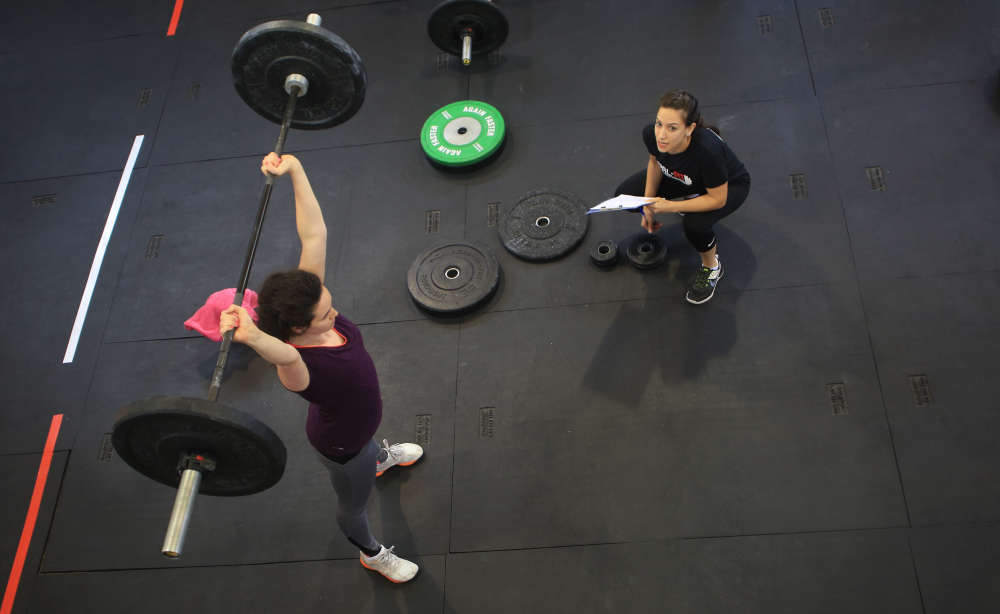
Amani Manassra, 33, is a Crossfit coach who has been training for ten years and coaching for close to three-and-a-half years. She said that Palestinian society expects women to be strong in everything from running a home to raising children and taking care of every aspect of the family’s well-being, yet society objects to sports, an integral part of a human being’s mental and physical strength. “I faced much criticism for being a female coach who lifts heavy weights. Many men who came to the gym opposed or resented the idea that a woman could train them to lift weights. I learned that they have nothing personal against me, but they find it difficult to accept something that they are not used to.”
And even women who have access to sports facilities are not always able to exercise or play sports because they are not financially independent, which deprives them of the power to choose.
Hiba Al-Ghoul is an announcer for international matches and an administrator who works for the Palestinian Football Association. She shared that one of the main issues facing female athletes is the inability to make personal choices, making their participation in sports events and trainings dependent on permission given by their families. She recalled that at a FIFA camp, many of the women who enrolled in a referees’ training session failed to show up because they were not allowed to stay out late or sleep outside the house. Others were forced to skip the camp because of house chores, pregnancy, or having to look after their children. “Unfortunately, our society does not support women who want to venture into the world of sports. Many of the female athletes have no income or salary and play with no return. Finances play a huge role in motivating athletes and increasing participation,” she explained.
According to a study conducted by Samar Al-Araj from Bethlehem University on the “Obstacles that Face Arab Women in Leading Positions in the Field of Sports in the Asian Arab Countries,” it was found that women are marginalized in sports because of social reasons first, then because of educational and personal abilities. The study showed that a large percentage of men are unwilling to accept women as superiors in sports institutions. Not only that, but family and relatives’ interference, society’s lack of confidence in women’s abilities, men’s conviction that women must not have a priority other than the household, and the lack of necessary freedom of movement that is required to work in sports all add insult to injury. Al-Araj recommended that more efforts should be exerted to improve the organizational structure, and that laws and policies should be passed in the national Olympic committees and sports federations to increase women’s participation in sports.
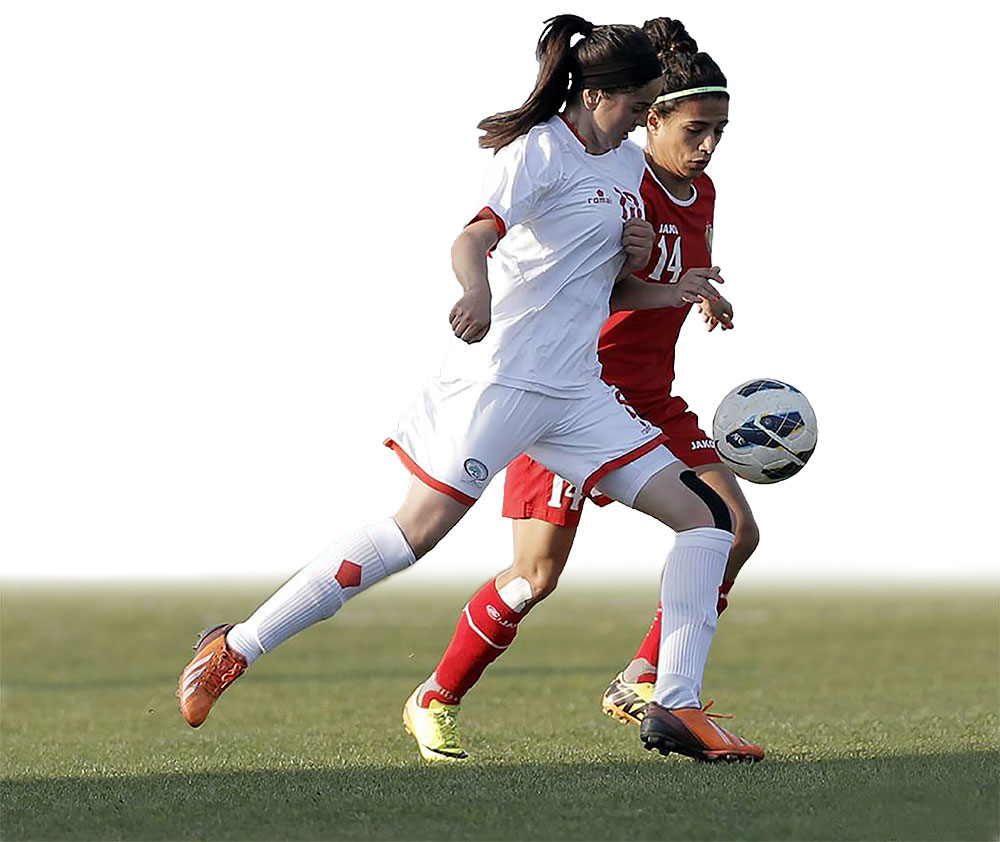
Deema Said in front.
Photo courtesy of
Deema Said.
And while some believe that the answer lies in laws and policies, others think that media is the tool to shift opinions. Sajeda Sweiti, 25, is the first woman in Hebron to host a weekly sports radio show. At first there was resistance to the idea of her hosting a sports radio show, but she has become a successful and well-known sports journalist. Since the launch of her show, she has been working to shed light on women’s sports and break the mental and social barriers associated with sports and women. But she cannot drive change alone. “I barely hear male radio hosts cover the matches and achievements of women’s football or basketball teams,” she notes. “Maybe they cover some events, but there is insufficient coverage of women’s sports on Palestinian radio stations.”
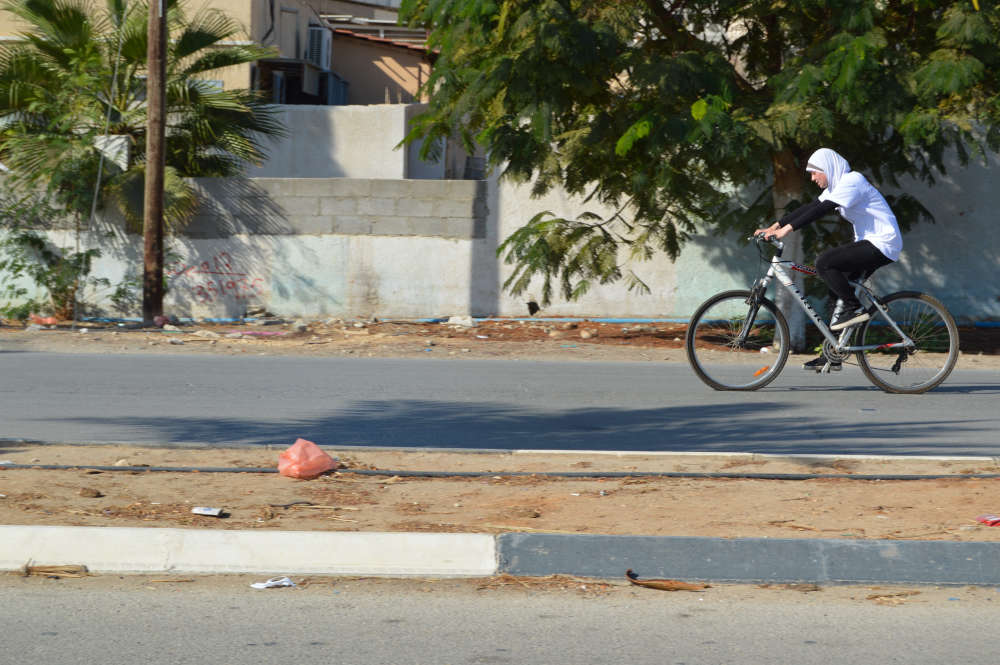
Everyone interviewed agreed that the most effective way to promote sports among girls and women and dismantle negative perceptions in our society is through school sports and media. Dr. Khalil explained that Palestinians need a more vocal media that highlights women’s sports and successes until they become a part of Palestinian culture. In addition, all sports federations should strive to increase the presence of women, and focus on promoting women’s sports in schools and recruiting female students, because professional athletes are made in schools. Progress cannot be complete without an efficient mechanism to fight dropout; and universities must create athletic scholarships to encourage female and male athletes to continue to compete, instead of abandoning sports in favor of academia.
Malak Hasan is head of the Palestine News Agency WAFA’s English page, secretary-general of the Palestinian Boxing Federation, co-founder and media coordinator of Cycling Palestine, and founder of the Women in Sports Network | Palestine.
You can follow her on Facebook @journalistmalakhasan.

